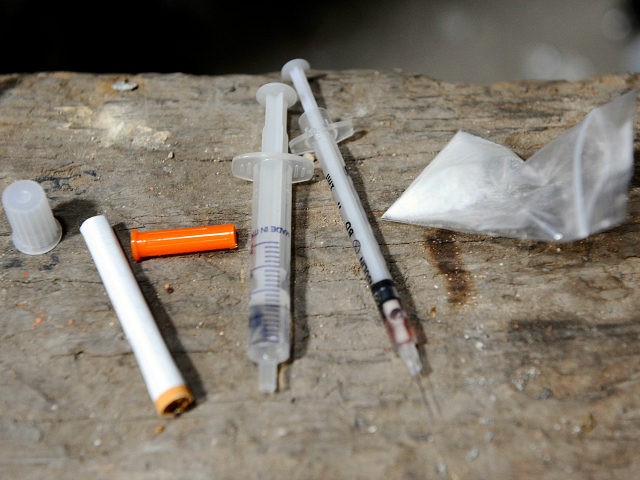President Donald Trump’s budget blueprint outlines a $175 million increase for combatting drug trafficking and the opioid epidemic while supporting an additional $500 million increase to give opioid addicts treatment options and stop more from succumbing to addiction.
Trump’s budget funds Justice Department efforts to combat rising crime and a drug epidemic “by providing a combined increase of $175 million above the 2017 annualized CR level to target the worst of the worst criminal organizations and drug traffickers in order to address violent crime, gun-related deaths, and the opioid epidemic,” a release from the White House states.
In a memo introducing reforms of the Obama administration’s lax law enforcement policies, U.S. Attorney General Jeff Sessions cited a 2015 FBI crime report that revealed a 10.8 percent increase in murders from 2014 to 2015—the largest increase in a single year since 1971—and a 3.9 percent increase in violent crime overall. Major cities, in particular, saw a wave of murders take place: Another FBI report found some of the most populous cities were hit with a stark 21.6 percent increase in murders.
“[M]any violent crimes are driven by drug trafficking and drug trafficking organizations. For this reason, disrupting and dismantling those drug organizations through prosecutions under the Controlled Substances Act can drive violent crime down,” Sessions said.
Trump’s budget blueprint also supports a large increase in funding for the Department of Health and Human Services’ campaign against addictive narcotics:
[The President’s 2018 budget] supports substance abuse treatment services for the millions of Americans struggling with substance abuse disorders. The opioid epidemic, which took more than 33,000 lives in calendar year 2015, has a devastating effect on America’s families and communities. In addition to funding Substance Abuse and Mental Health Services Administration substance abuse treatment activities, the Budget also includes a $500 million increase above 2016 enacted levels to expand opioid misuse prevention efforts and to increase access to treatment and recovery services to help Americans who are misusing opioids get the help they need.
In 2014, about 47,000 died from drug overdoses, mostly from heroin and other opiates. Heroin overdose deaths more than tripled between 2010 and 2015.
The U.S. Centers for Disease Control and Prevention explained in a January report (emphasis added):
More persons died from drug overdoses in the United States in 2014 than during any previous year on record. From 2000 to 2014 nearly half a million persons in the United States have died from drug overdoses. In 2014, there were approximately one and a half times more drug overdose deaths in the United States than deaths from motor vehicle crashes.
“Opioids, primarily prescription pain relievers and heroin, are the main drugs associated with overdose deaths,” the report continued.
Before the opioid epidemic began in earnest, a 2008 estimate suggested five percent of the U.S. population used opioids “chronically.”
In addition to overdose deaths, other issues are violence from those who hurt or kill under the influence of drugs or rob others to pay for their next fix, the health complications stemming from drug abuse, and the crime that accompanies drug trafficking.
Nearly all of the heroin consumed in the U.S. comes from Mexico and is brought across the border by Mexican traffickers, mostly illegal immigrants, as the Washington Post revealed in a 2014 investigative report.
Trump hammered illegal immigration and the opioid abuse epidemic on the campaign trail.
“They’re poisoning more than our youth—they’re poisoning everybody. But they’re poisoning our youth. It’s tough enough out there. Our youth doesn’t have a chance with what’s happening, and we’re not going to let it happen anymore,” Trump said in New Hampshire in October. “We’re going to help the people that are so badly addicted. We’re going to help them. … I’m going to stop the drugs from coming in.”

COMMENTS
Please let us know if you're having issues with commenting.